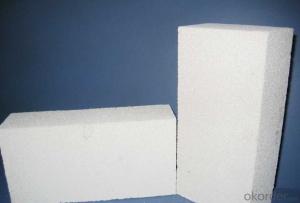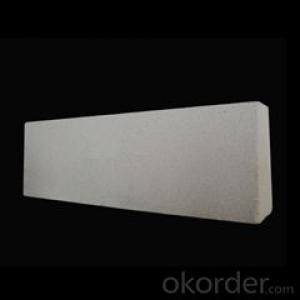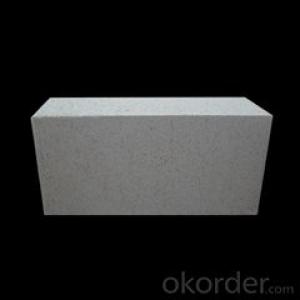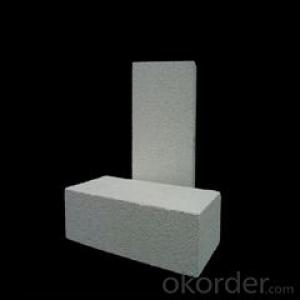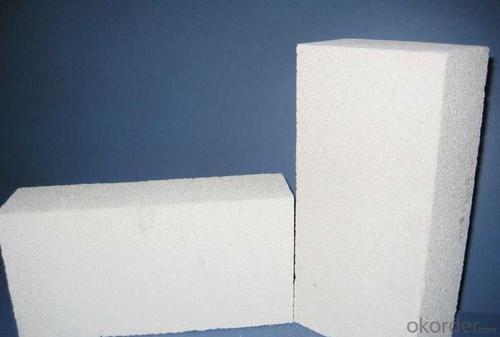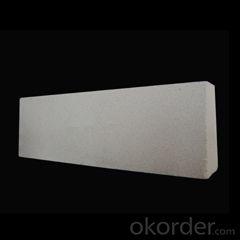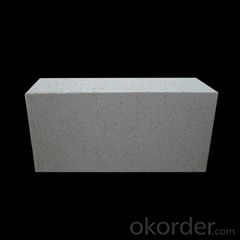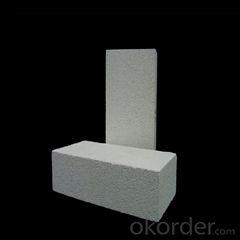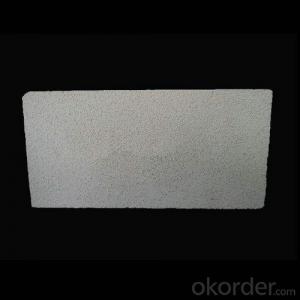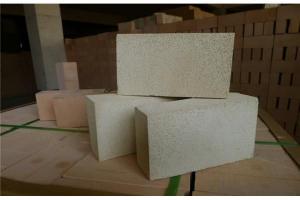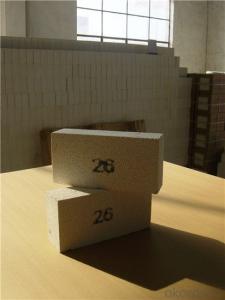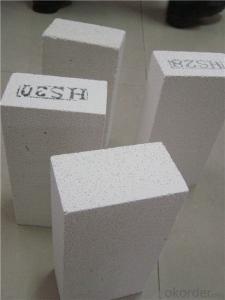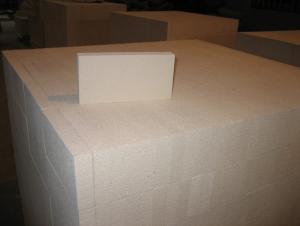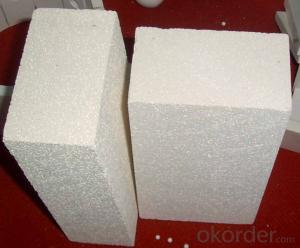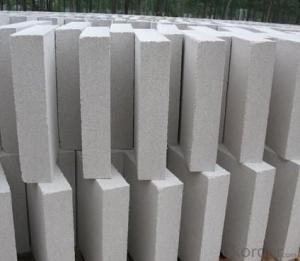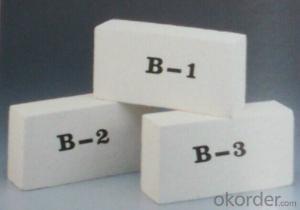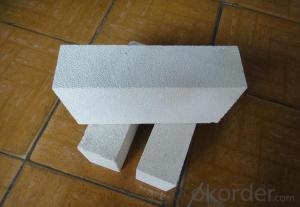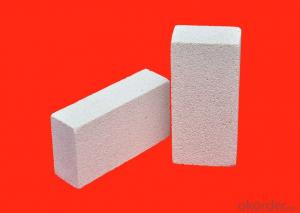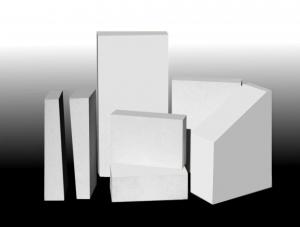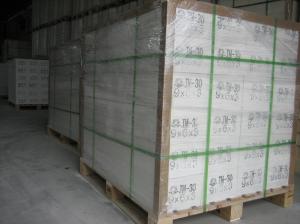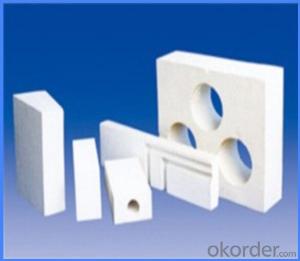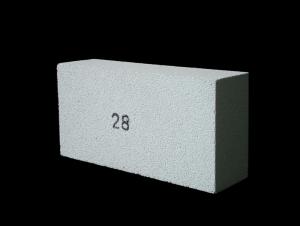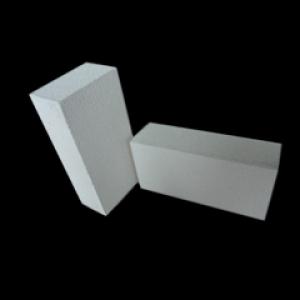Insulating Fire Brick - Refractory Mullite Insulating Refractory Brick JM 88
- Loading Port:
- Shanghai
- Payment Terms:
- TT OR LC
- Min Order Qty:
- 5000 kg
- Supply Capability:
- 10000 kg/month
OKorder Service Pledge
OKorder Financial Service
You Might Also Like
Refractory mullite insulating refractory brick JM 23
Okorder series heat insulation brick
Okorder series thermal insulation brick is an effective, energy saving, low carbon, environmental protection advanced, according to the ASTM standard manufacturing products. Okorder series products are best Li Ning and insulation in all types of industrial furnaces in the metallurgical field, aluminum, petrochemical, electric power and glass ceramic materials. They can be used as part of the working layer of thermal insulation or non - melting. Products have been widely used in the following furnace, achieved satisfactory results.
Application of heat preservation brick
Metallurgical Industry: blast furnace, hot blast furnace, heating furnace, etc..
Petrochemical Industry: ethylene cracking furnace, hydrogen production furnace, primary reformer, heating furnace, etc..
Ceramic industry: roller kiln, kiln, etc..
Glass industry: glass furnace regenerator, etc.
Carbon industry: carbon furnace, etc..
Aluminum electrolysis industry: aluminum reduction cell, etc.
Other industries: tunnel kiln, shuttle kiln, etc..
Advantages of heat insulation brick
Low thermal conductivity: more porosity will bring good thermal insulation effect, energy saving.
High crushing strength: high crushing strength, volume stability.
Low heat storage: small heat storage to absorb more heat, energy-saving effect is obvious.
Gao Chundu: iron, alkali metal impurity content is low.
The precise size: Brick size processing precision, special shape cutting and grinding, accelerate the brickwork.
Insulating brick picture
Common problem solutions
1. What products do you have?
We have all kinds of refractory bricks, refractory casting materials, mortar, cement, ceramic fiber products, etc..
Or you can browse our products to choose what you need.
2. How to control product quality?
With strict quality control system throughout the material selection and production process, we have the quality of refractory materials and ceramic fiber products to meet customer requirements.
From the selection of raw materials, the quality of our control to start. The quality certificate of the raw material is required, each batch of the products are to be tested in the use of the forward line. In the production process, the quality control by the workers, and then each piece of classification, and through the quality supervision and inspection.
3. Can you give me a brief introduction to the application of your product?
My company is mainly engaged in refractories in the steel, cement, glass, ceramics, petrochemical, electric power and other industries.
4. What information do you need if I need you?
In order to select the right products, we will provide us with information, such as the United States, technical data, order quantity, product application, etc..
If you have any questions, please contact us.
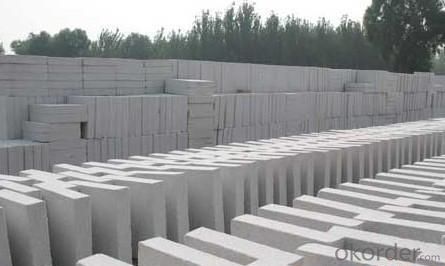
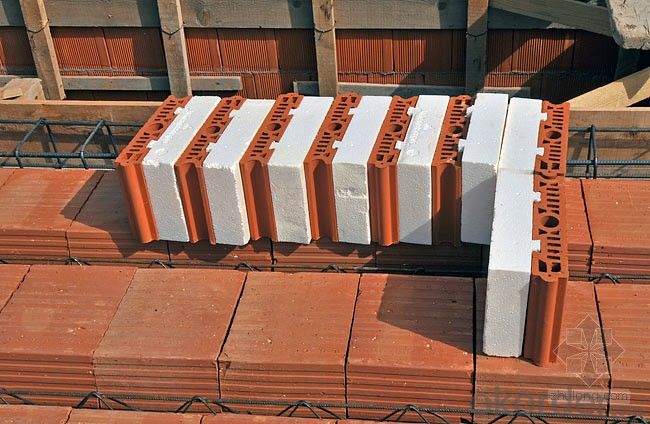
- Q: Can insulating fire bricks be used in the construction of brick kilns?
- Yes, insulating fire bricks can be used in the construction of brick kilns. Insulating fire bricks are specifically designed to have high thermal resistance, which makes them ideal for applications where insulation is required. In brick kilns, insulating fire bricks can be used to line the walls, floor, and roof of the kiln, helping to retain heat and improve energy efficiency. These bricks are capable of withstanding high temperatures and can provide insulation against the heat generated during the firing process. Additionally, insulating fire bricks can also help reduce heat loss, resulting in faster and more efficient firing cycles. Overall, using insulating fire bricks in the construction of brick kilns can enhance their performance and contribute to more effective and sustainable kiln operation.
- Q: Can insulating fire bricks be used in the construction of gas kilns?
- Indeed, it is possible to utilize insulating fire bricks in the construction of gas kilns. These bricks are specifically designed to possess low thermal conductivity, enabling them to retain heat effectively and enhance the kiln's energy efficiency. To guarantee the even distribution and maintenance of heat within the kiln chamber, proper insulation is necessary for gas kilns. By employing insulating fire bricks to line the walls, floor, and ceiling of the kiln, a barrier is created that aids in the prevention of heat loss and ultimately improves the kiln's overall performance. Furthermore, due to their lightweight nature and ease of handling, insulating fire bricks have become a favored choice for kiln construction projects.
- Q: Can insulating fire bricks be used for insulation in incinerators?
- Yes, insulating fire bricks can be used for insulation in incinerators. These bricks are designed to withstand high temperatures and provide excellent thermal insulation, making them suitable for use in incinerators to minimize heat loss and improve energy efficiency.
- Q: Can insulating fire bricks be used in the construction of glass slump molds?
- Insulating fire bricks can indeed be utilized in the construction of glass slump molds. These bricks are composed of lightweight materials capable of enduring high temperatures, rendering them appropriate for kilns and other heat-intensive applications. When creating a glass slump mold, it is crucial to possess a material capable of withstanding the heat generated as the glass slumps and takes form. Insulating fire bricks offer the necessary insulation and heat resistance essential for this procedure. They can be cut and shaped to accommodate the desired mold design without succumbing to degradation or crumbling, even after repeated firings. As a whole, insulating fire bricks present a dependable and long-lasting choice for constructing glass slump molds.
- Q: Do insulating fire bricks have a high insulation efficiency?
- Yes, insulating fire bricks have a high insulation efficiency. Due to their low thermal conductivity and high heat resistance, they effectively prevent the transfer of heat, thereby providing excellent insulation.
- Q: Can insulating fire bricks be used in heat treatment furnaces?
- Yes, insulating fire bricks can be used in heat treatment furnaces. Insulating fire bricks are specially designed to have low thermal conductivity, which means they are able to withstand high temperatures while minimizing heat loss. This makes them ideal for use in heat treatment furnaces, where maintaining a consistent temperature is crucial for the successful heat treatment process. Additionally, insulating fire bricks have excellent insulating properties, which helps to reduce energy consumption and improve the overall efficiency of the heat treatment furnace. Therefore, using insulating fire bricks in heat treatment furnaces is a common practice in various industries.
- Q: Can insulating fire bricks be used in high-temperature kilns for pottery?
- Yes, insulating fire bricks can be used in high-temperature kilns for pottery. Insulating fire bricks are specifically designed to withstand high temperatures, typically up to 3000°F (1650°C). These bricks have low thermal conductivity, which means they can effectively retain heat and provide insulation in kilns. Using insulating fire bricks in high-temperature kilns can help maintain a consistent temperature throughout the firing process, ensuring that the pottery is properly heated and cooled. Additionally, these bricks are lightweight, which makes them easier to handle and install in kilns. Overall, insulating fire bricks are a suitable choice for high-temperature kilns used in pottery.
- Q: Can insulating fire bricks be used for insulation in boilers?
- Yes, insulating fire bricks can be used for insulation in boilers. These bricks are designed to withstand high temperatures and are highly effective in retaining heat, making them suitable for insulating the walls and floors of boilers.
- Q: Can insulating fire bricks be used in heat exchangers?
- Yes, insulating fire bricks can be used in heat exchangers. These bricks are designed to have excellent thermal insulation properties, making them suitable for applications where heat needs to be contained or transferred efficiently. Heat exchangers rely on the efficient transfer of thermal energy, and insulating fire bricks can help in reducing heat loss or gain in these systems, improving their overall efficiency.
- Q: Are insulating fire bricks resistant to alkali vapor attack?
- Insulating fire bricks are known for their general resistance to alkali vapor attack. They are crafted from high-quality refractory materials like fire clay or silica, which possess exceptional resistance to chemical assaults, including alkali vapor. These bricks are engineered to endure extreme temperatures and challenging surroundings, rendering them suitable for applications where alkali vapor may be present, such as in industrial furnaces, kilns, and incinerators. However, the level of resistance may vary depending on the specific composition and manufacturing process employed for these insulating fire bricks. To ensure compatibility with alkali vapor exposure, it is advisable to refer to the manufacturer's specifications or seek expert advice.
Send your message to us
Insulating Fire Brick - Refractory Mullite Insulating Refractory Brick JM 88
- Loading Port:
- Shanghai
- Payment Terms:
- TT OR LC
- Min Order Qty:
- 5000 kg
- Supply Capability:
- 10000 kg/month
OKorder Service Pledge
OKorder Financial Service
Similar products
Hot products
Hot Searches
Related keywords
